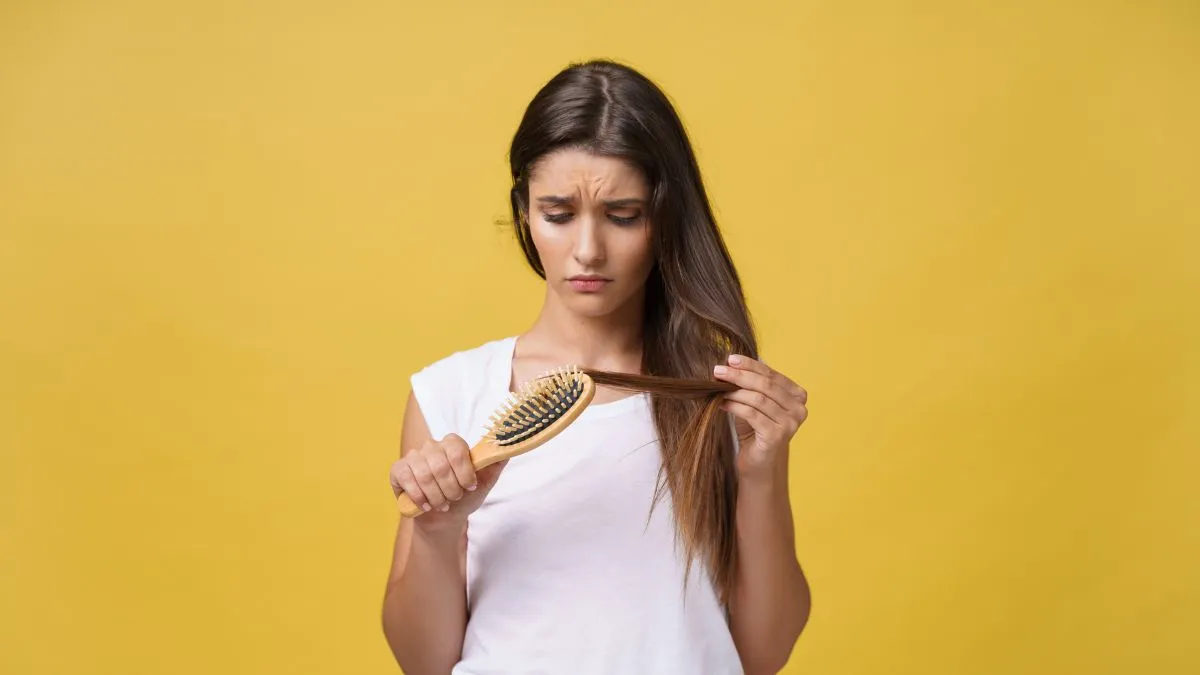
Skin and hair care is an important part of self care. Most people believe that glowing skin and healthy hair come only from using creams, branded shampoos or through expensive treatments. However, some of the most important things for skin and hair care are not the costly products but those simple everyday fabrics like pillowcases and towels. These things are often ignored resulting in the damage of our skin and hair. Read on to know more.
Table of Content:-
Can A Pillowcase Cause Hair Loss And Acne?
Yes, the type of pillowcase affects skin and hair.
“Each night the face and the scalp rest on a pillowcase for six to eight hours. During this time the fabric collects sweat, oil, dust, and even bacteria. When the pillowcase is not washed often enough, these impurities are pressed back onto the skin and scalp. This can block pores and increase acne which can also make the scalp itchy and weak, leading to poor hair growth over time,” shares Dr Gajanan Jadhao Founder & Chief Hair Transplant Surgeon at La-Densitae.
- Cotton pillowcases, which are most common, can be rough and can cause frizz, split ends and even fine lines on the skin.
- In comparison, silk or satin are soft to the touch. They allow hair to move smoothly and reduce tangling. They also prevent strong pressure marks on the face.
Reports suggest that silk pillowcases are better for hair as they help the skin retain moisture and are recommended by many beauty experts for people with curly or frizzy hair.
Can a dirty towel cause hair loss?
“Towels are another everyday item that quietly influence skin and hair health. Many people use them several times before washing. They are often left damp in bathrooms. A wet and warm towel quickly becomes a home for bacteria and fungus,” explains Dr Gajanan Jadhao.
Research has revealed that almost ninety percent of bathroom towels carried bacteria. Unknowingly, using such towels on the face or scalp can give rise to acne, rashes and fungal infections.
Therefore it is important to understand how towels should be used. Many people rub their skin and hair roughly after a shower resulting in making the hair more frizzy and weak. Harsh rubbing can also irritate sensitive skin. That’s why dermatologists often suggest patting the skin and hair dry. This method may take slightly longer but it is much safer.
Also Read: How Often Should You Change Loofahs, Towels, Razor Blades, Hair Brushes, And Why It Matters?
How To Protect Your Skin and Hair
Unclean pillowcases and towels may not directly cause hair fall or acne. Yet they make the scalp and skin unhealthy over time. A scalp that is already irritated or infected will not support strong hair growth. Skin that faces continuous exposure to dirt will not respond well to even the best creams or medical care. It is important to keep the fabrics clean as they provide the foundation on which any product or treatment can work effectively.
Simple habits can protect both skin and hair. Here are some suggestions by Dr Gajanan Jadhao:
- Pillowcases should be washed at least once a week. For people with oily or acne prone skin, it is better to wash them every two to three days.
- Replacing cotton pillowcases with silk or satin can reduce hair damage and also help in slowing down the appearance of fine facial lines.
- Towels also require regular washing. Experts recommend cleaning them after three uses.
- It is also advised to keep separate towels for hair and body.
- Towels should always be dried fully before reuse because a damp towel supports very fast bacterial growth.
Other household habits also make a huge difference. Dirty bedsheets can trigger acne. Therefore, bedsheets should be changed regularly to reduce contact with dust mites and hidden allergens that may cause sensitivity.
Also Read: Are Your Bed Sheets And Pillow Covers Causing Acne? Ways To Prevent Acne Due To Bedding
Clean fabrics create a healthier space where the skin can heal and the scalp can breathe freely.
People tend to believe that solutions lie only in costly serums or complex treatments. However, some of the most effective results come from small daily steps like clean pillowcases and fresh towels. These simple choices complement advanced treatments and make their results stronger. They also prevent common issues from coming back.
Final Word
Renowned international dermatologists often recommend washing pillowcases, sheets and towels regularly as one of the most important habits for healthy skin and hair. These reminders show that everyday hygiene is not minor but in fact central for long lasting results.
Skin and hair do not only respond to what is applied through creams and oils. They also respond to what touches them for hours every day. Pillowcases and towels may look ordinary but their impact is powerful. Clean and gentle fabrics help in reducing acne, protecting scalp health, preventing frizz, and even slowing signs of skin ageing. Changing habits around them may seem simple but the long term benefits are significant. It is not only recommended but essential for good skin and hair health.
Also watch this video
How we keep this article up to date:
We work with experts and keep a close eye on the latest in health and wellness. Whenever there is a new research or helpful information, we update our articles with accurate and useful advice.
Current Version